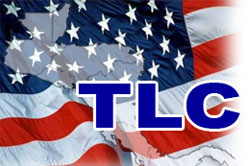Editor's Note: Juliana Rincón Parra [1] has already shown us the extensive opposition [2] to Costa Rica's ratification of the Central American Free Trade Agreement. However, San Jose [3]-based Roy Rojas was adamant that we also show the support for CAFTA in Costa Rica and its blogosphere. The following post has been translated from its original Spanish [4].
 In the last two years, in Central America and the Dominican Republic, a lot of political discussion has centered around the good and the bad that would come from the proposed free trade agreement with the United States. Out of all the countries involved, Costa Rica is the only one that has not ratified the Central American Free Trade Agreement. This is because an opposition of minority parties has tried to kidnap the Legislative Assembly and to obstruct all parliamentary progress.
In the last two years, in Central America and the Dominican Republic, a lot of political discussion has centered around the good and the bad that would come from the proposed free trade agreement with the United States. Out of all the countries involved, Costa Rica is the only one that has not ratified the Central American Free Trade Agreement. This is because an opposition of minority parties has tried to kidnap the Legislative Assembly and to obstruct all parliamentary progress.
What has in fact happened in the countries that have ratified – Nicaragua and El Salvador for example – is that exports to the US have increased significantly and unemployment has not gone up as opponents had warned. What is the fear keeping labor unions from supporting a deal with a country as consumerist as the United States, where, at the moment, Costa Rica already exports millions of dollars every year?
How is it that so many economists and experts on the subject, like those of the Inter-American Development Bank (I.A.D.B.) and Central American Bank of Economic Integration (BCIE), among others, could be mistaken and allegedly want to drag us into a catastrophe like the unions insist. This is simply inconceivable. We cannot close our doors to a great market like the United States, which, although we are currently insulated from by the “Initiative of the Caribbean Account”, this program could be eliminated at any time. And we would be left unable to export our agricultural products, technologies, and textiles to a market that feeds thousands of Costa Ricans.
According to data provided by the Ministry of Economy [5], 13,000 people could be unemployed with the exit of textile manufacturers from the country as it would be impossible to compete with other manufacturing countries that are able to export their products, without tariffs, to the United States. These companies leaving Costa Rica would then install in some other country of the region that has ratified the treaty. At the moment, in some zones of Costa Rica, the textile sector provides almost 78% of employment. In 2007, textile exports from Costa Rica diminished 11% compared to the previous year. Meanwhile, in countries of the region that are part of CAFTA, textile exports have increased 17% [6], which makes us wonder if the treaty really wouldn't benefit us.
Now, one of the subjects that has been most controversial is the opening of the telecommunications industry to more competition (which does not equate to privatization). Many points of view exist about the topic, such as in Fusil de Chispas [ES] [7], which frequently makes references to data from other countries where there are multiple suppliers of telecom services, such as this post pointing readers [ES] [8] to an article from the online magazine Confidential, which points out the low tariffs that we have in Costa Rica [ES] [8], even though we are third in cell phone use per capita worldwide.
En el año 2000, la tarifa por el servicio celular en Costa Rica era la más baja de Centroamérica, y estaba más de 50% por debajo de la segunda más barata, la salvadoreña. Así consta en un completo informe publicado entonces por la revista online Confidencial, sobre la calidad del servicio ofrecido por BellSouth en Nicaragua.
And so, if we are clear that we will not have privatization, and what we will have is just more competition, then why is there fear of letting other companies offer cellular and internet service? If the current provider, ICE, is the cheapest of the region and practically the world, than what does it matter if others come also? Competition benefits all of the users. ICE would likely improve their service and foreign service providers would have to compete with their low prices. The Association of Young people for the Development [ES] [12], an organization of Costa Rican youths, has a weblog [12] that deals mostly with the free trade agreement (State Universities and CAFTA [ES] [13], State-investor Arbitration [ES] [14], Where is our progress? [ES] [15] , etc), It shows a clear example of the diversity of opinions on the topic of free trade. When the moment arrives for deciding, nobody it can say there was no information.
Supporting the free trade agreement does not mean that we support the North American government. Nor that we agree with its manifold international policies. But we recognize that, as a small country, we need a commercial partner. We need their market and we need a treaty which guarantees the right to their market which are now without control. With a treaty, we have a “contract” that would not allow them from preventing our entrance in the future.